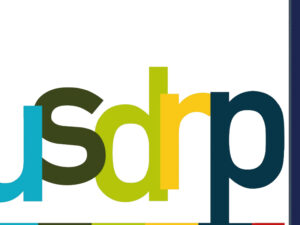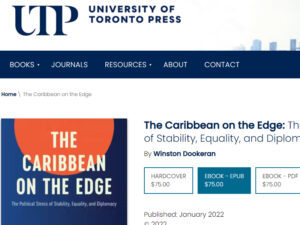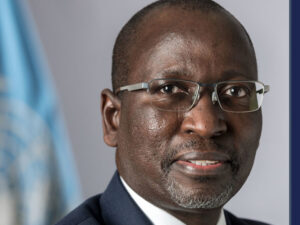The COVID-19 Pandemic – Using Mediation and Collaboration to manage the issues
By Charalee Graydon (EUCLID)
We know the rules, stay home! Practice social distancing and wash your hands frequently for at least 20 seconds. Articles write about vaccines being developed but it is noted it may take months to have them ready for use by humans.[1] That requires countries and communities to seek methods to stop the spread of the virus and to deal with the social results occurring from methods used to stop the virus. Borders have closed. Governments are trying to control the spread of the virus. Health care providers are trying their best to meet the needs of patients, often risking their safety. The social messages from friends and relatives are to “Stay Safe.” News reports are indicating that scientists believe that social distancing may be necessary until 2022.[2] The COVID virus is wreaking havoc with other issues such as the economy and efforts to address climate change with COP26 being postponed.[3] The Organization for Economic Co-operation and Development has published a report in March 2020 indicating the world economy risks falling “ill” as it is being threatened by the impact of COVID-19.[4]
Those dealing with environmental matters are shifting their approach to deal with issues online. One example is the 50th Anniversary of Environmental World Day, June 5, 2020, that will be handled by digital and virtual platforms. This recognizes the pandemic that has occurred around the world and humankind’s fragility on the planet.[5]
In many countries, we are asking the health care system to more that they have the capacity to do. Yet the system is responding by working together, by collaborating to deal with the problem. Communities are sharing limited resources, staff, and supplies.
When responding to the Pandemic of COVID-19, several articles and interactive meetings are being organized. Peacekeeping, collaboration, and mediation groups are reaching out to communities. UNESCO has provided useful online resources about responses to COVID-19.[6] Mediators and peacebuilding organizations are creating groups to provide methods to deal with problems arising as a result of the illness and the effects it is having on society.[7] I have had the good fortune to be able to participate in town hall meetings with Mediators Beyond Borders, International that is providing ideas and reflections on how people can reach out to mediators and peacebuilders at this time.[8]
An approach I wish to share with you set out in a video by an expert in the area of collaboration. In the YouTube video, Global Medical Collaboration, David Savage suggests medical people from different countries can share information about dealing with the virus and searching for medical solutions.[9] David is an author of the book, Break Through to Yes, Unlocking the Possible within a Culture of Collaboration.[10] and an expert in using collaboration to address difficult situations.
The COVID-19 pandemic has resulted in COP 26 being postponed.[11] Steps are, however, continuing to plan for the event and discussions are taking place about how to recover and build better methods of dealing with climate change and health concerns the world faces. One example is a Webinar, “Climate Action” to take place on April 30, which will address the interaction of the Pandemic and the upcoming COP.[12] This activity illustrates how people are shifting their methods of working together to share information and make plans to deal with the climate change policies that have been outlined in the Paris Agreement. The April 30 Webinar sets out the question, “ COVID-19: What does this mean for the fight against climate change.” The world is waiting for a return to stability and how this question will be answered. It is being said that the pandemic is providing a wake-up call that matters need to be handled differently.[13]
People are moving forward with programs to work together to share information and methods of dealing with the isolation that results from the lockdowns. It is being made clear that social distancing does not mean social isolation. The World Health Organization has published information on the issue which gives a positive message to those experiencing the lockdowns and the social distancing required to stop the spread of COVID-19.[14] Recent news is that France has devoted resources to helping people deal with abusive situations which have increased with lockdowns in the country.[15] Thus, the virus has more than one effect that must be addressed. Problems such as the mental health toll on young people and the elderly need to be confronted as has been set out in the World Health Organization article. Another is the roller coaster ride the economy is experiencing.[16] Mediation and collaboration are methods of conflict management that can be of assistance in handling these issues.
From this short review, it is apparent that the COVID-19 virus which started approximately three months ago, is going to be with the global community for more time.[17] Global communities are working together to address the health, social and economic issues. The air is cleaner as a result of the pandemic but this to rebuild a better society that recognizes biodiversity is the challenge we face. A recent article in Science and Business, Science in Overdrive, shows that the scientific community is using collaboration to work toward methods to combat COVID-19.[18] We must be patient and work toward addressing the world challenges we are facing.
[1] “Why a Coronavirus Vaccine Takes over a Year to Produce – and Why That Is Incredibly Fast,” World Economic Forum, accessed April 6, 2020, https://www.weforum.org/agenda/2020/04/why-a-coronavirus-vaccine-takes-over-a-year-to-produce-and-why-that-is-incredibly-fast/.Vaccines
[2] “These Harvard Scientists Think We’ll Have to Socially Distance until 2022,” World Economic Forum, accessed April 21, 2020, https://www.weforum.org/agenda/2020/04/coronavirus-social-distancing-how-long/.
[3] “COP26 Postponed | UNFCCC,” accessed April 21, 2020, https://unfccc.int/news/cop26-postponed.
[4] “Global Economy Faces Gravest Threat since the Crisis as Coronavirus Spreads – OECD,” accessed April 21, 2020, http://www.oecd.org/economy/global-economy-faces-gravest-threat-since-the-crisis-as-coronavirus-spreads.htm.
[5] U. N. Environment, “World Environment Day,” World Environment Day, accessed April 21, 2020, http://www.worldenvironmentday.global/node.
[6] https://plus.google.com/+UNESCO, “Resource Center of Responses to COVID-19,” UNESCO, March 23, 2020, https://en.unesco.org/covid19/communicationinformationresponse/mediasupport.
[7] Constantin-Adi Gavrila, “Reflections in the Age of Coronavirus (COVID-19),” Kluwer Mediation Blog, March 14, 2020, http://mediationblog.kluwerarbitration.com/2020/03/14/reflections-in-the-age-of-coronavirus-covid-19/.
[8] “Peacebuilders and Pandemics: A MBBI and NAFCM Town Hall (April 8 & April 9),” Mediators Beyond Borders International, April 4, 2020, https://mediatorsbeyondborders.org/peacebuilders-and-pandemics-a-mbbi-and-nafcm-town-hall-april-8-april-9/.
[9] Savage, David B, video, Global Medical Collaboration., https://www.youtube.com/watch?v=bAau7RrZFrs credit to David B. Savage.
[10] Savage, David B., Break Through to Yew: Unlocking the Possible withing a Culture of Collaboration, 2018, Savage Management Inc.
[11] “COP26 Postponed | UNFCCC.”
[12] “Climate Action,” accessed April 21, 2020, http://www.climateaction.org/webinars.
[13] “Secretary-General Says COVID-19 ‘Wake-Up Call’ Demands Recovery Built on Green Economy, Marking Earth Day 2020 – World,” Relief Web, accessed April 21, 2020, https://reliefweb.int/report/world/secretary-general-says-covid-19-wake-call-demands-recovery-built-green-economy-marking.
[14] “Mental Health and Psychological Resilience during the COVID-19 Pandemic” (World Health Organization, March 27, 2020), http://www.euro.who.int/en/health-topics/health-emergencies/coronavirus-covid-19/news/news/2020/3/mental-health-and-psychological-resilience-during-the-covid-19-pandemic.
[15] “France to Put Domestic Violence Victims in Hotels as Numbers Soar under Coronavirus Lockdown,” accessed April 6, 2020, https://www.france24.com/en/20200330-france-to-put-domestic-violence-victims-in-hotels-as-numbers-soar-under-coronavirus-lockdown.
[16] “Global Economic Outlook – COVID-19 Crisis Update April 2 2020,” Fitch Ratings, accessed April 6, 2020, /sovereigns/global-economic-outlook-covid-19-crisis-update-april-2-2020-02-04-2020.
[17] BI, “A comprehensive timeline of the new coronavirus pandemic, from China’s first COVID-19 case to the present,” Business Insider France, April 1, 2020, https://www.businessinsider.fr/us/coronavirus-pandemic-timeline-history-major-events-2020-3.
[18] “Science in Overdrive: Researchers Are Inspired and Exhausted by Scale of COVID-19 Challenge,” Science|Business, accessed April 6, 2020, https://sciencebusiness.net/news/science-overdrive-researchers-are-inspired-and-exhausted-scale-covid-19-challenge.






